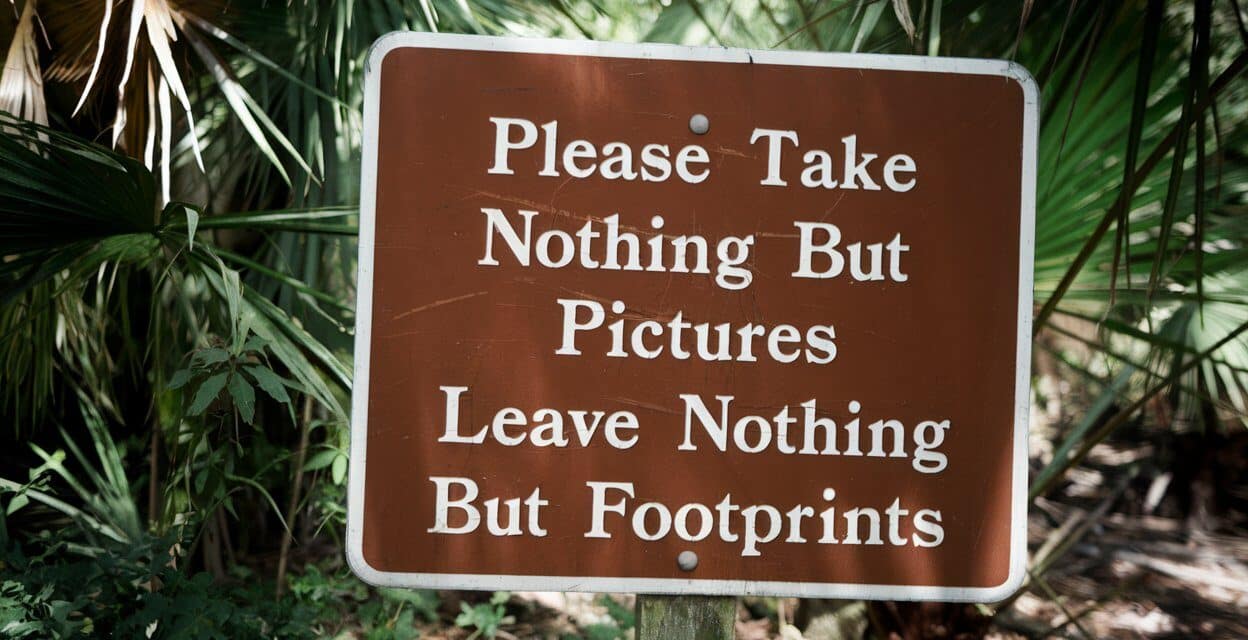In an age where our natural landscapes are more precious than ever, practicing Leave No Trace is essential for preserving the great outdoors.
This guide explores the 7 fundamental principles that every camper should embrace to minimize their impact on nature. From planning your trip to respecting wildlife, each principle offers practical strategies for responsible outdoor enjoyment.
Whether you’re a seasoned adventurer or a weekend camper, understanding and applying these guidelines helps ensure that our beautiful environments remain intact for generations to come.
What Is Leave No Trace?
Leave No Trace is a set of outdoor ethics that aims to promote environmental stewardship and minimize human impacts on the natural world, ensuring that our outdoor activities do not disturb ecosystems or detract from the natural beauty of wilderness areas. This initiative is especially crucial for nature lovers and outdoor enthusiasts, who share a responsibility to protect fragile ecosystems and maintain ecological balance while enjoying camping and hiking experiences. By following the Leave No Trace principles, individuals can enhance their outdoor appreciation and foster a culture of environmental consciousness and nature conservation.
The 7 Principles of Leave No Trace
The 7 Principles of Leave No Trace are designed to guide outdoor enthusiasts in minimizing their ecological footprints while enjoying outdoor activities and ensuring the preservation of natural habitats and cultural artifacts. These principles serve as essential camping tips that help individuals practice ethical camping and respect wildlife while providing a framework for environmental awareness in various outdoor settings, such as national parks and wilderness areas.
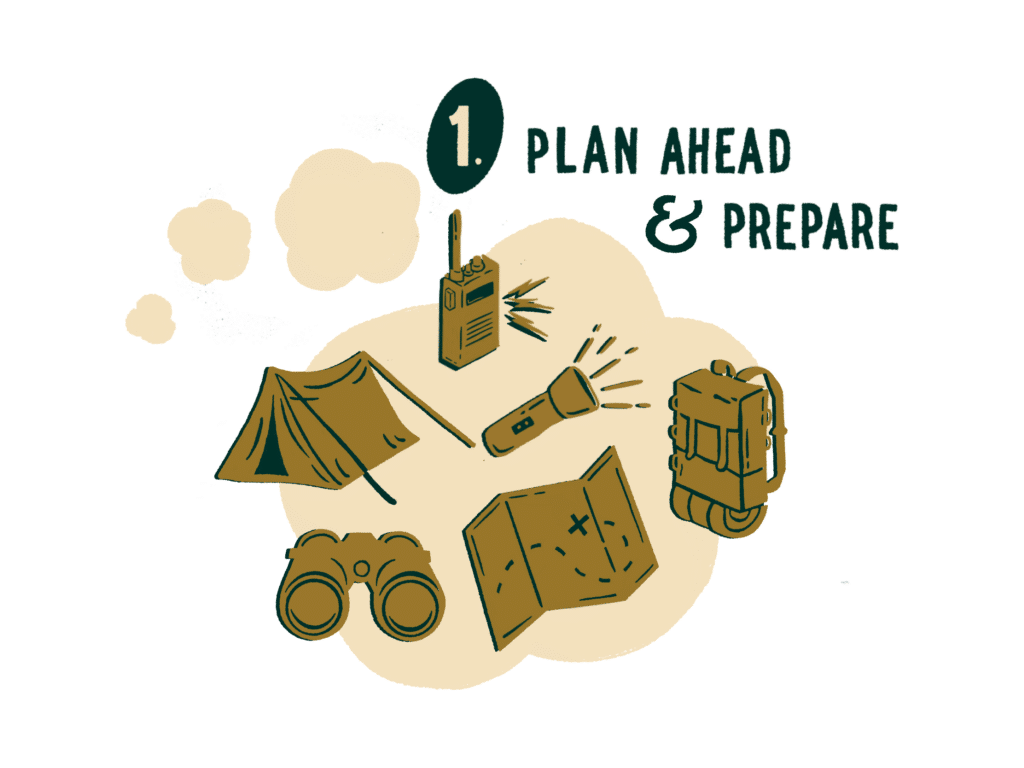
Plan Ahead and Prepare
The first principle of Leave No Trace is planning ahead and preparing adequately. This involves understanding hiking regulations, weather conditions, and proper waste disposal methods to ensure a successful and respectful outdoor experience.
Being well-prepared enhances enjoyment and safeguards the environment during outdoor activities. Outdoor enthusiasts should familiarize themselves with local regulations and guidelines, including hiking regulations, which can vary greatly from one location to another.
- Check weather forecasts to pack appropriate clothing and gear.
- Adhere to designated trails to minimize ecological disturbance.
- Carry biodegradable products to reduce environmental impact.
Such considerations are crucial in preserving nature and fostering a sense of responsibility towards conservation efforts.
By integrating outdoor education into their planning, individuals cannot only develop a deeper appreciation for the natural world and its delicate ecosystems but also actively promote eco-friendly camping practices.

Travel and Camp on Durable Surfaces
Traveling and camping on durable surfaces is vital to the Leave No Trace principles, as it helps to protect fragile ecosystems and supports trail conservation efforts in natural habitats.
Choosing proper camping spots involves understanding the terrain and minimizing disruptions to local flora. This helps preserve the environment and allows for a more enjoyable experience for future visitors.
By sticking to established trails and designated campsites, outdoor enthusiasts can significantly reduce their ecological footprint, supporting trail conservation.
- Prioritize areas with durable surfaces, such as rock or hardened soil.
- Avoid camping near water sources to prevent soil erosion and contamination.
Awareness of human activities’ cumulative impact emphasizes the importance of responsible recreation. Each decision, from where to pitch a tent to how campfires are managed, plays a crucial role in sustaining the beauty and integrity of our natural surroundings.
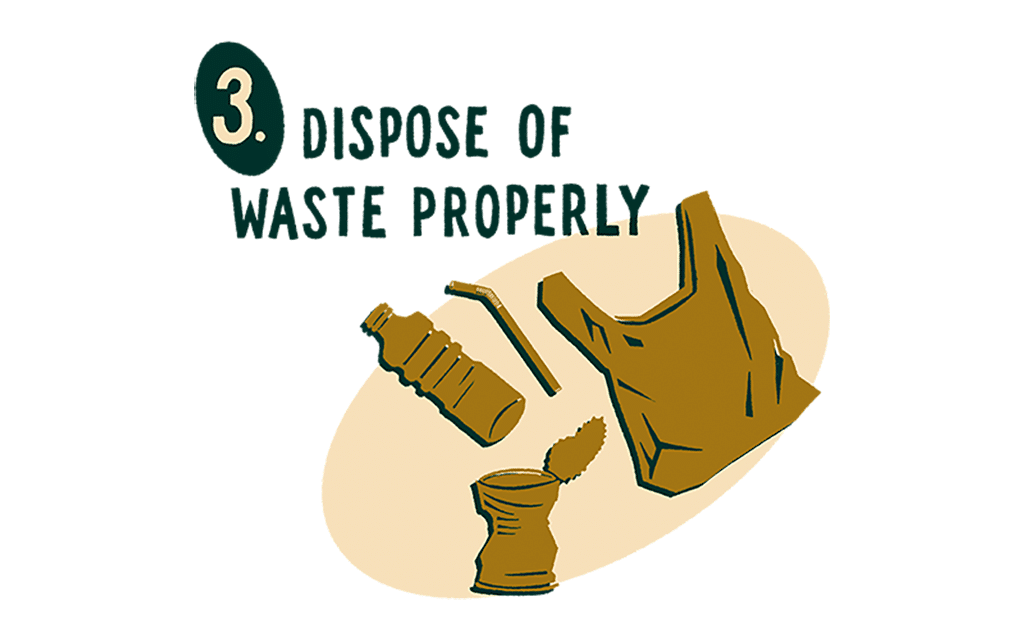
Dispose of Waste Properly
Proper waste disposal is a critical aspect of Leave No Trace. It encompasses techniques for managing trash and human waste and the use of biodegradable soap to reduce environmental impact.
Understanding the importance of eliminating waste responsibly is vital for preserving the beauty of our natural surroundings. Campers should always carry out their trash, implementing the ‘pack it in, pack it out’ principle and avoiding common pitfalls such as littering or improperly disposing of food scraps, as these practices can attract wildlife and disrupt ecosystems.
Using designated waste bags for trash management helps keep the area tidy and ensures that harmful substances do not leach into the soil.
Opting for compostable or recyclable materials like bamboo utensils and biodegradable soaps can significantly lessen one’s ecological footprint. This small change can make a big difference, giving you a sense of hope and optimism about your contribution to environmental stewardship. Engaging in activities such as native plant restoration can further contribute to this, creating a balance between enjoyment and conservation.
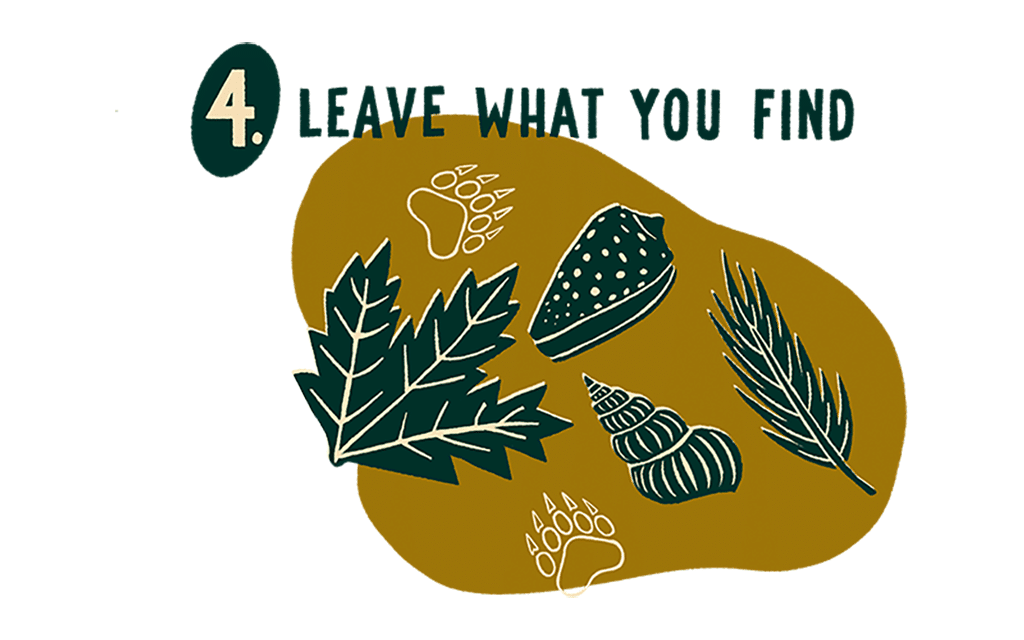
Leave What You Find
Leaving what you find is the fourth principle of Leave No Trace, urging outdoor enthusiasts to respect cultural artifacts, wildlife, and natural features, supporting historical preservation and ecological balance.
By adhering to this important guideline, individuals help maintain the integrity of our shared heritage and promote an environment where future generations can engage with and learn from the natural world. Respecting these resources fosters a culture of appreciation and stewardship, influencing behavior that nurtures and protects the fragile ecosystems around us, supporting historic preservation and the protection of cultural artifacts.
- Environmental awareness becomes second nature when we protect rather than disturb.
- Such practices encourage a deeper connection to nature.
- They inspire a collective responsibility for safeguarding both wildlife and cultural sites.
Through this mindful approach, we can cultivate an environment that thrives on mutual respect, ensuring a harmonious coexistence with the surrounding beauty.
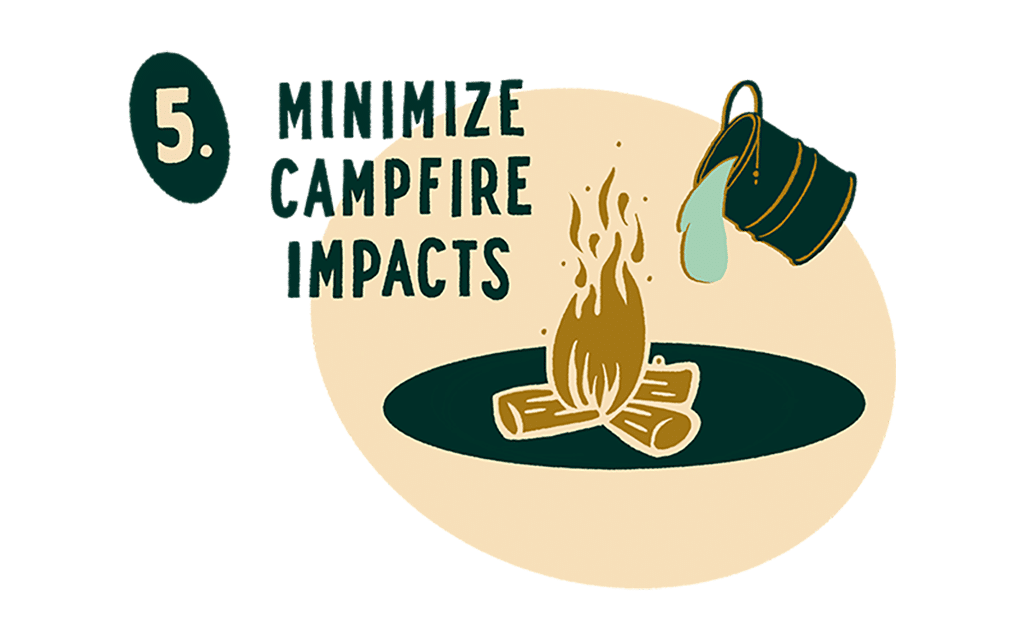
Minimize Campfire Impacts
Minimizing campfire impacts is essential to preserving the integrity of natural areas and advocating for using established fire rings and alternative cooking methods to reduce ecological disturbances.
In a world where outdoor experiences can have a lasting impact on both participants and the environment, adopting safe campfire practices is crucial for ensuring that future generations can equally enjoy the wonders of nature. It is of utmost importance to respect local regulations, as these guidelines are specifically designed to safeguard wildlife habitats and maintain ecological balance.
Utilizing portable stoves can be an effective alternative, significantly lowering the risk of wildfires and detrimental air pollution while supporting sustainable practices.
- Always check local fire regulations before lighting a fire.
- Use designated fire rings to prevent soil erosion, minimizing campfire impacts.
- Opt for portable stoves when camping in sensitive areas.
Remember, every action taken to preserve our natural surroundings, no matter how small, contributes to wildlife conservation and fosters a healthier ecosystem for years to come. It’s a collective responsibility that we all share.

Respect Wildlife
Respecting wildlife is a fundamental principle of Leave No Trace, emphasizing the importance of observing animals from a distance and understanding their role in maintaining ecological balance.
When engaging in outdoor activities, enthusiasts must embrace practices that enhance their experience and foster environmental consciousness.
Here are some key points to remember:
- Maintain a safe distance: Observing animals from afar allows for uninterrupted natural behavior, reducing stress on the wildlife.
- Avoid feeding animals: Providing food can disrupt their natural foraging habits and lead to dependency, which endangers their survival skills.
- Use binoculars: These tools can enhance the experience without intruding on the animal’s space, allowing for closer observation without physical proximity.
- Stay on designated trails: This minimizes habitat damage and ensures that ecosystems remain intact.
By following these practices, adventurers can indulge in unforgettable moments while prioritizing the health and safety of wildlife and their habitats.

Be Considerate of Other Visitors
Being considerate of other visitors is the final principle of Leave No Trace, which promotes camping etiquette and ensures that everyone can enjoy their outdoor experiences without unnecessary disturbances.
When individuals choose to practice thoughtful behavior, they contribute to a more peaceful and enjoyable atmosphere that enhances their appreciation of nature. This means keeping noise to a minimum, allowing the serenity of the outdoors to remain undisturbed. Being mindful of shared spaces—such as communal cooking areas, picnic spots, and trails—invites genuine camaraderie among adventurers.
- Respect others’ quiet time by refraining from loud conversations or music.
- Share communal resources, allowing everyone access to cooking tools and essentials.
- Practice patience on narrow trails, allowing others to pass and enjoy their journey.
By prioritizing these considerate actions, the outdoor experience becomes more fulfilling for all, fostering a strong sense of community among those who seek solace and adventure in the great outdoors. This shared commitment to respect and mindfulness creates a bond that enhances everyone’s outdoor experience.
How to Implement Leave No Trace Principles
Implementing the Leave No Trace principles requires a commitment to outdoor education and eco-responsibility, providing practical camping tips that can enhance the enjoyment of wilderness while preserving its integrity.
Educate Yourself and Others
Educating yourself and others about Leave No Trace principles and the importance of outdoor ethics is key to ensuring responsible outdoor fun and eco-responsibility. This is the first step in fostering a culture of outdoor ethics and ecological awareness, ensuring everyone can contribute to preserving natural habitats and engaging in responsible tourism.
Enhancing commitment to outdoor ethics can be significantly achieved through well-structured educational initiatives. These initiatives, such as workshops and community outreach programs, are designed to engage participants in hands-on learning, thereby promoting responsible outdoor behavior.
For instance, local environmental organizations, including the US Forest Service and National Park Service, have successfully implemented weekend workshops. At these workshops, families can participate in activities that demonstrate best practices for minimizing impact while camping.
- Interactive sessions play a crucial role in reinforcing the importance of sustainable techniques. Allowing attendees to practice these techniques, such as proper waste management, makes the learning process more practical and impactful on behavior.
- Community outreach programs, supported by entities like the Bureau of Land Management, can facilitate relationships with schools, empowering students to take on stewardship roles in their local parks.
Success stories from these initiatives reveal that when individuals understand the reasons behind these principles, they are more likely to advocate for and adhere to them, ultimately creating a more responsible outdoor community.
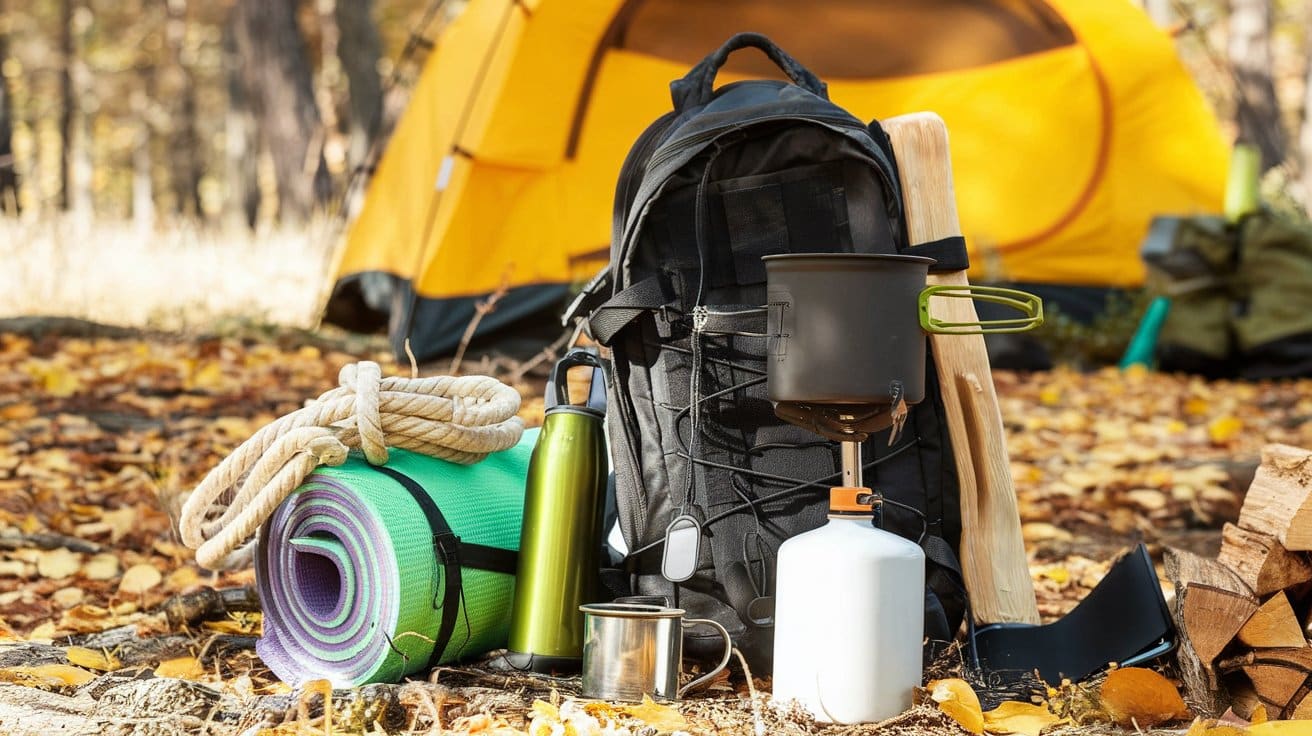
Use Proper Gear and Techniques
Using proper gear and techniques is essential for practicing Leave No Trace, ensuring your outdoor experiences are safe and environmentally friendly.
When planning an outdoor adventure, individuals should consider a range of equipment tailored to their specific activities, whether hiking safety gear or eco-friendly tents from brands like Tentsile. For instance, hiking safety gear may include sturdy boots, weather-appropriate clothing, and a reliable navigation system. For eco-friendly camping, lightweight tents, reusable utensils, and biodegradable soaps can significantly lessen the environmental footprint.
Here are some important camping principles and considerations to keep in mind:
- Choose durable, multi-use items to minimize waste.
- Plan food that requires minimal packaging and produces less trash.
- Educate others about the principles of Leave No Trace to foster a collective responsibility.
By meticulously selecting gear and adhering to sustainable practices, outdoor enthusiasts can enjoy nature while preserving its beauty for future generations.
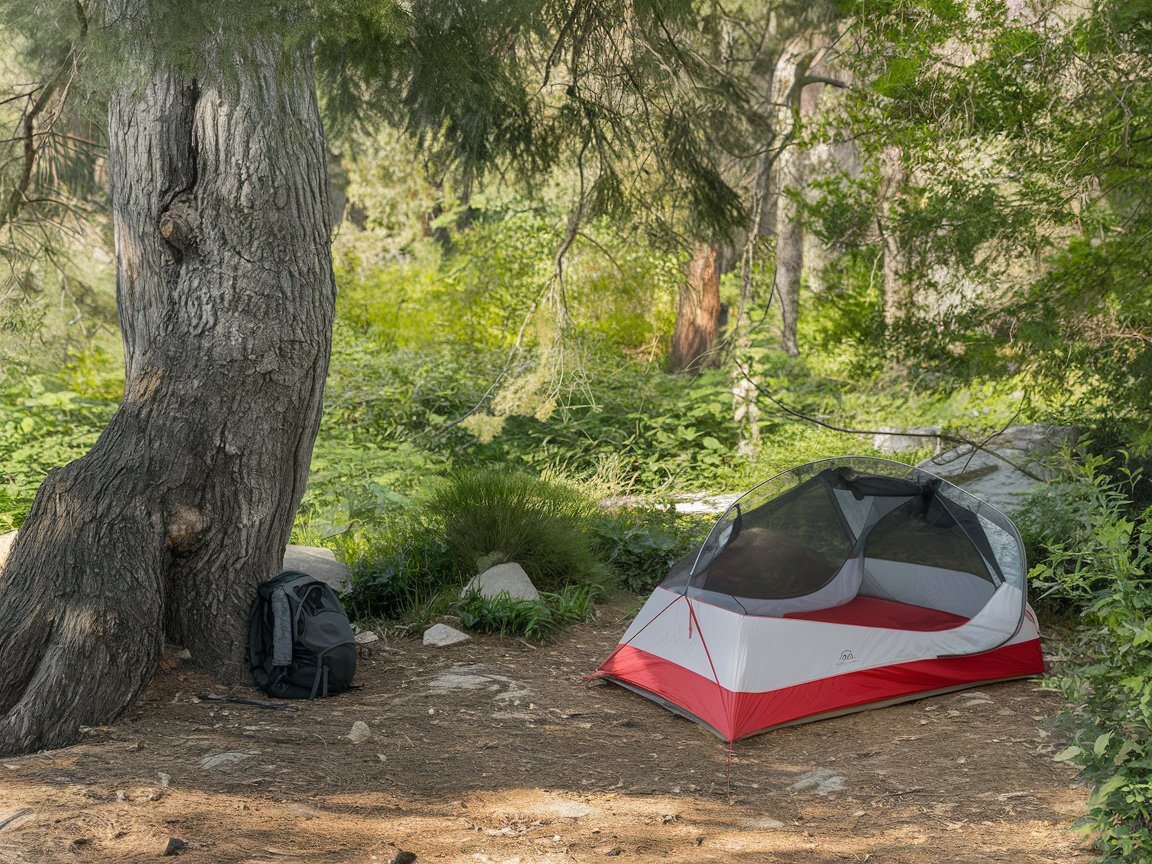
Leave No Trace in the Backcountry
Practicing the Leave No Trace principle in the backcountry is crucial for protecting remote ecosystems and maintaining trail conservation to ensure the sustainability of these natural areas.
Adventurers must adopt responsible practices to minimize their impact on the environment when they venture into unspoiled territories.
Effective navigation is essential for hiking safety and trail maintenance, as straying off established paths can lead to erosion and habitat damage. Adopting technologies like GPS devices and traditional maps ensures you stay on course.
Proper waste management—such as packing out all waste and using designated restroom facilities when available—is not just a task, it’s a commitment we make to protect the wildlife and natural resources that make our outdoor adventures possible.
Travelers should consider these practices to enhance their outdoor experience while safeguarding the pristine beauty of nature.
Leave No Trace in Frontcountry Camping
Implementing Leave No Trace principles in front-country camping involves adhering to camping etiquette and practices that enhance outdoor enjoyment for all visitors. This allows everyone to fully experience the natural wonders while minimizing their impact on the environment.
When choosing a site, selecting a location at least 200 feet away from lakes and rivers is essential to protect water quality. Consideration of group sizes is also important; keeping your party small fosters a more intimate experience and lessens wear on the fragile ecosystems around campsites, aligning with land management goals.
Adhering to Leave No Trace guidelines promotes a harmonious atmosphere where all can enjoy outdoor recreation responsibly. Below are some best practices to keep in mind:
- Respect wildlife by observing from a distance and never feeding animals.
- Follow fire rules: use designated fire pits or stoves and ensure fires are completely extinguished.
- Leave what you find, taking only memories and photographs to preserve the area’s natural beauty.
By practicing these principles, campers can ensure that the great outdoors remains enjoyed for generations to come. This long-term benefit should give us hope and inspire us to continue our responsible outdoor practices.
Leave No Trace in Water Activities
As a nature lover or outdoor recreation enthusiast, your role in preserving aquatic ecosystems is crucial. Practicing Leave No Trace during water activities is essential to minimize environmental impact. Your actions can help preserve these vital ecosystems.
Engaging in responsible practices enhances the enjoyment of these experiences and fosters a deeper connection to the environment. Participants should prioritize proper waste disposal, ensuring that all trash is collected and removed from the area. This can include using designated receptacles or taking waste home.
When choosing products for cleaning or cooking, opting for biodegradable items can significantly reduce the harm to delicate aquatic habitats. Other useful methods include:
- Using environmentally friendly soaps and detergents.
- Avoiding single-use plastics and opting for reusable containers.
- Respecting local wildlife by keeping a safe distance.
By following these responsible water activity guidelines, individuals contribute significantly to ecological awareness and the sustainable enjoyment of our beautiful natural resources, such as those in Yellowstone and Texas.
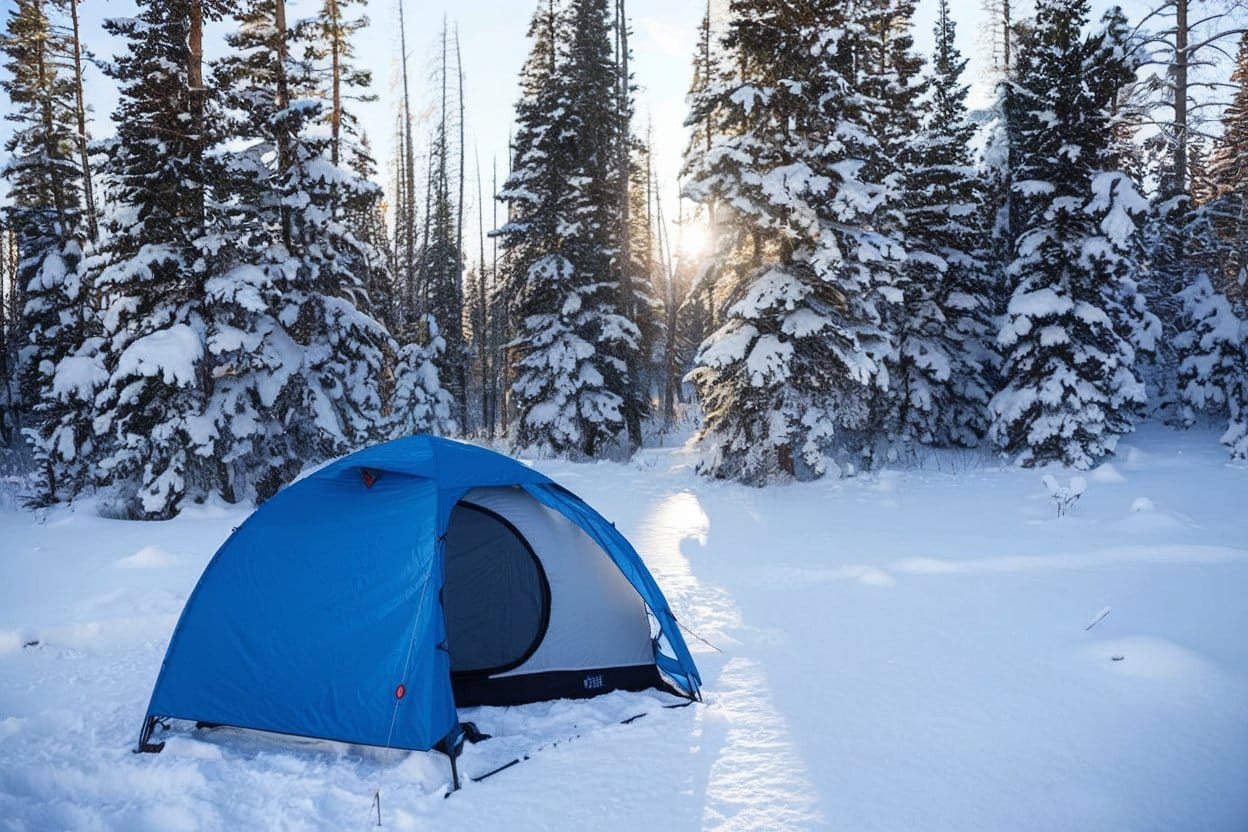
Leave No Trace in Winter Activities
Incorporating Leave No Trace principles into winter activities is essential for maintaining eco-responsibility and preserving winter ecosystems.
As temperatures drop and snow blankets the landscape, it becomes even more crucial for adventurers to recognize the impact of their actions on these fragile environments. By adhering to guidelines that promote minimal footprints, one can enjoy the serene beauty of winter without causing harm. Key strategies include:
- Staying on trails to prevent damage to vegetation hidden beneath the snow.
- Managing waste effectively, ensuring all trash, including food scraps, is packed out, as decomposition is significantly slower in cold conditions.
- Using biodegradable soap and establishing a designated waste disposal area to minimize contamination of pristine waterways.
Incorporating these practices enriches personal experiences and fosters a collective responsibility toward the well-being of our winter landscapes.
Leave No Trace in Cultural and Historic Sites
Respecting and preserving cultural and historic sites is a vital application of Leave No Trace principles. It’s not just about preservation, but about understanding and respecting the significance of these locations, which fosters a deeper connection and respect for our shared heritage.
When visiting such places, individuals should be mindful of their surroundings and the implications their actions may have on the environment and cultural heritage. It is crucial to engage in thoughtful practices that contribute positively to the preservation of these sites.
- Stay on designated paths: This helps minimize erosion and protects the plant life that may have grown for generations.
- Dispose of waste responsibly: Always pack out what you pack to maintain the purity of these treasured areas.
- Educate yourself: Understanding the history and significance of a site enhances appreciation and encourages stewardship.
Each visit offers an opportunity to foster respect and appreciation for our shared heritage, encouraging a spirit of nature appreciation that resonates beyond mere tourism.
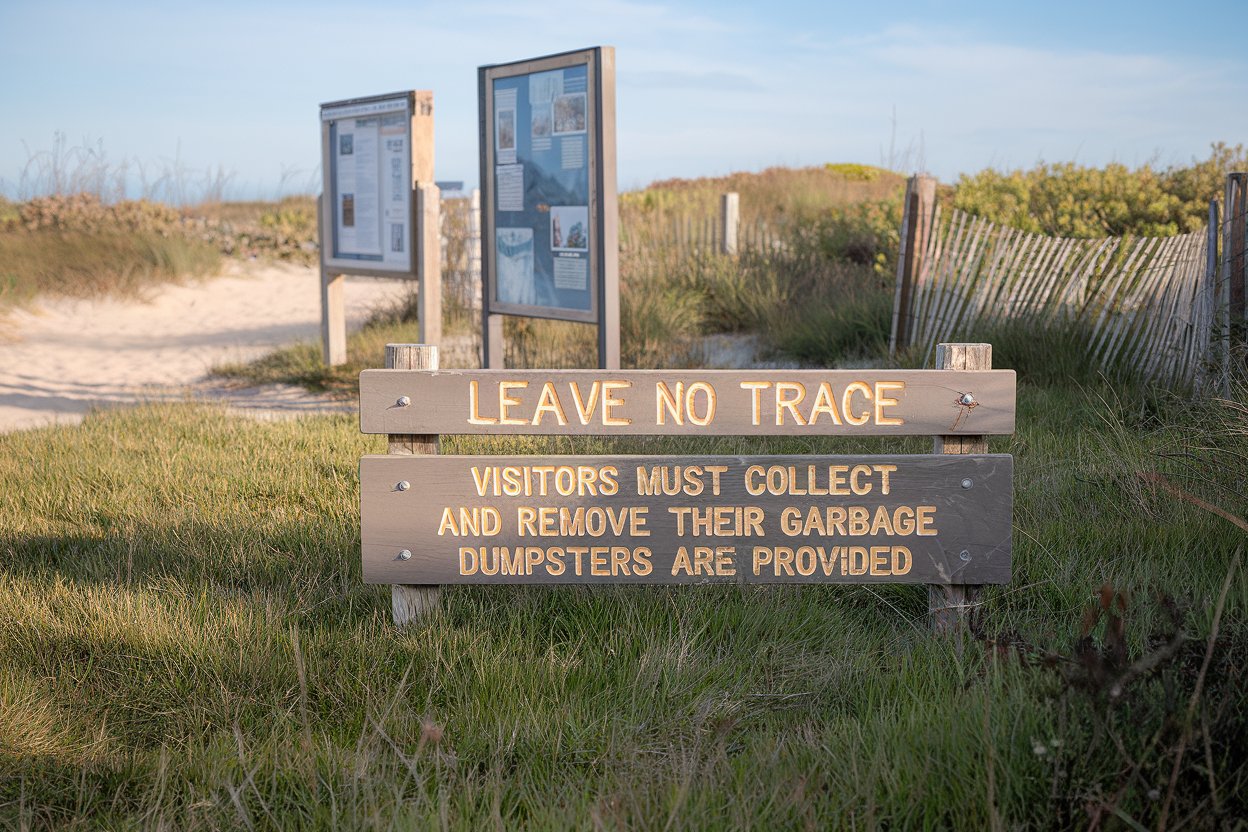
Frequently Asked Questions
What are the 7 principles of Leave No Trace that every camper should know?
The 7 principles of Leave No Trace are: plan ahead and prepare, travel and camp on durable surfaces, dispose of waste properly, leave what you find, minimize campfire impacts, respect wildlife, and be considerate of other visitors.
Why is it important for campers to follow the 7 principles of Leave No Trace?
Following the 7 principles of Leave No Trace helps protect the environment and preserve natural resources for future generations. It also helps maintain the beauty and integrity of the places we love to camp and hike in.
How can I plan ahead and prepare for my camping trip?
You can plan ahead and prepare by researching the area you will be camping in, obtaining necessary permits and maps, and packing the appropriate gear and supplies for your trip. This will help minimize the impact on the environment and ensure a safe and enjoyable camping experience.
What are some ways to dispose of waste properly while camping?
Some ways to dispose of waste properly include packing out all trash and waste, using biodegradable or reusable products, and digging catholes for human waste at least 200 feet away from water sources.
How can I minimize my campfire impacts?
You can minimize your campfire impacts by using established fire rings, using only dead and downed wood for your fire, and fully extinguishing the fire when you are done. It is also important to follow any fire restrictions in the area.
What should I do if I encounter wildlife while camping?
If you encounter wildlife while camping, it is important to give them space and observe from a distance. Do not approach or feed the animals, and properly store your food and trash to avoid attracting them to your campsite.

